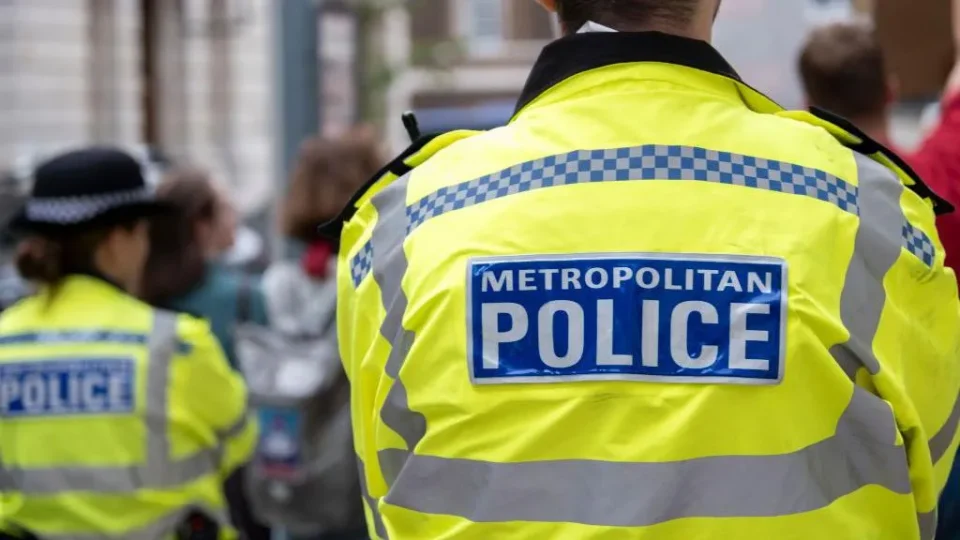The enhanced oversight of the Metropolitan Police has concluded, as reported by His Majesty’s Inspectorate of Constabulary and Fire & Rescue Services (HMICFRS).
The police force had been under intensified examination for a duration of two and a half years, following a series of scandals that included the murder of Sarah Everard, the strip-search of Child Q, and incidents of officers sharing derogatory messages.
HMICFRS acknowledged improvements made by the police force but also pointed out that there remains a “substantial amount” of work to be done.
Metropolitan Police Commissioner Sir Mark Rowley described the progress as “extraordinary” considering the challenges posed by a reduced budget and an increasingly smaller police force.
Lee Freeman from HMICFRS expressed satisfaction with the advancements achieved by the force and recommended moving it from the heightened monitoring status, known as Engage, back to standard monitoring.
He recognized that there is still “significant” work ahead but felt reassured by the initiatives established to ensure continuous sustainable improvements.
In response, the Metropolitan Police emphasized that its officers and staff had been diligent in addressing the issues at hand.
The police department outlined a new strategic plan, the New Met for London, laid out in July 2022, aimed at revitalizing the organization.
Sir Mark commended the “unwavering passion, commitment, bravery, and dedication” of the officers and staff amidst extremely trying circumstances.
He remarked, “The entirety of the Met has dedicated itself to repairing our flawed foundations to ensure our officers can effectively serve London.”
The commissioner mentioned to the BBC that the force is expected to “shrink at an even faster rate” in the coming year.
He stated, “Our budget discussions will conclude at the end of the month, but I have yet to see anything indicating we won’t be losing around a thousand officers and staff.”
He expressed concern over the projected reductions.
In December, the commissioner noted that the force needed an additional £450 million; shortly thereafter, the government announced an extra £65 million in funding.
The commissioner argued that the inspectorate’s removal of the enhanced monitoring status illustrates that the force is on the “right track.”
The inspectorate reported advances in several areas:
Home Secretary Yvette Cooper acknowledged the challenges still faced by the force while deeming the inspectorate’s findings as a “significant and positive step.”
She stated, “There is a widespread understanding that more work remains to be done to enhance performance and regain public trust, and I will maintain close collaboration with the commissioner and the mayor to ensure this marks the beginning of a sustained effort to improve the Metropolitan Police and ensure the safety of Londoners.”
Analysis by Sonja Jessup, BBC London home affairs correspondent:
This marks a pivotal moment for the Metropolitan Police.
Commissioner Sir Mark Rowley, who stepped into the role shortly after the force entered the Engage process, has faced immense pressure to demonstrate that his reform commitments are yielding tangible results.
The latest inspection by HMICFRS serves as a vote of confidence in their progress, although it signifies only the initial step.
It will take time for London residents, who frequently express their concerns about crime and police responses, to witness tangible outcomes and a sense of safety.
Additionally, overshadowing this favorable development is the commissioner’s stark warning of “eye-watering” budget cuts if additional funding is not secured.
Sir Mark claims the Met has repaired its “broken foundations,” but the question remains: how stable are they?
Mayor of London Sir Sadiq Khan attributed the advancement within the force to “the diligent efforts of the personnel,” as well as “record investment and backing from City Hall.”
He said, “After specifically requesting the HMI to investigate concerns related to child sexual exploitation, it is encouraging to see that the Metropolitan Police has made notable strides in this domain.”
However, he also conceded that “more work lies ahead.”
Just last week, the mayor indicated that typical council tax bills could rise by nearly £19 annually to help fund policing and fire services in London.


